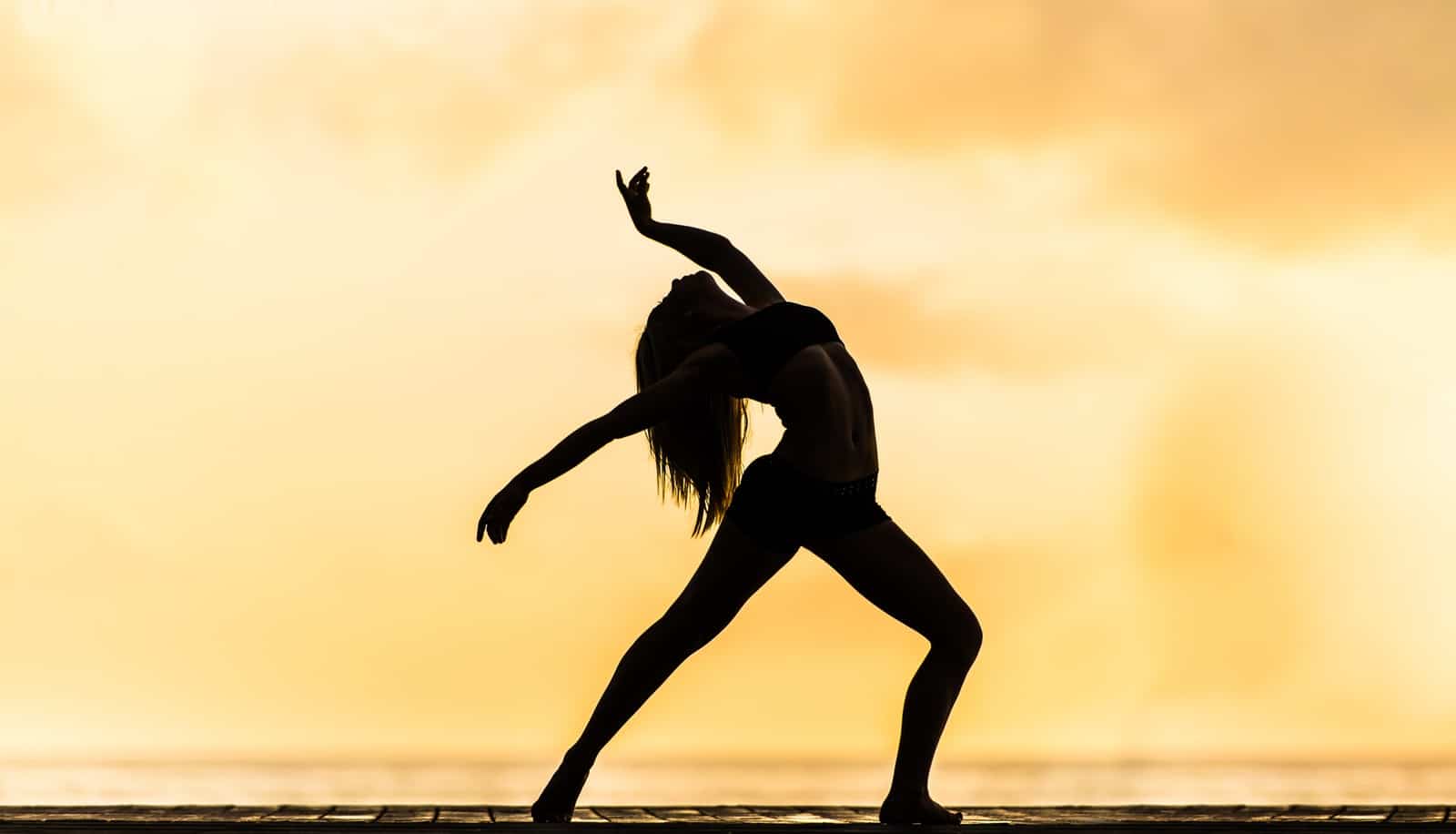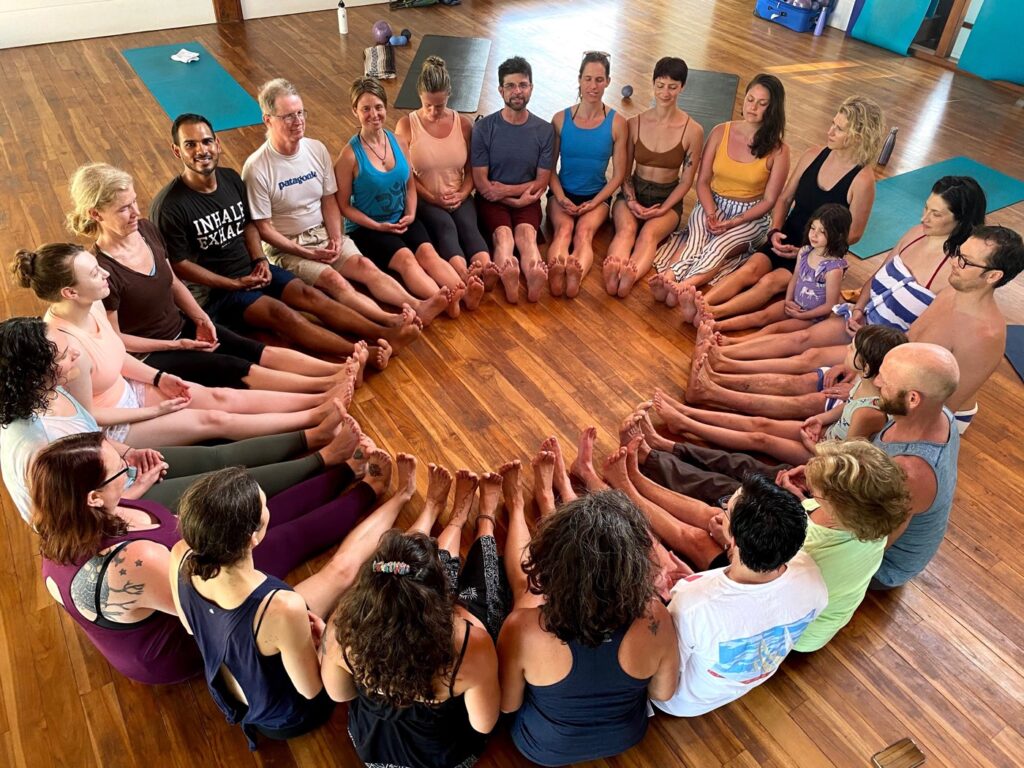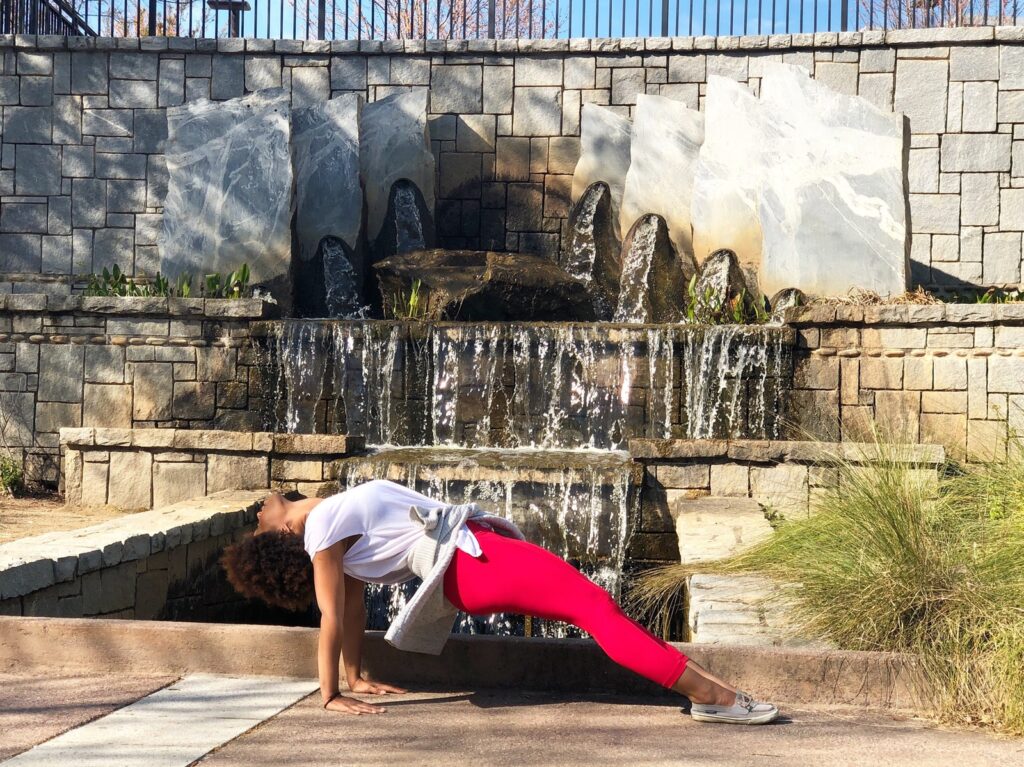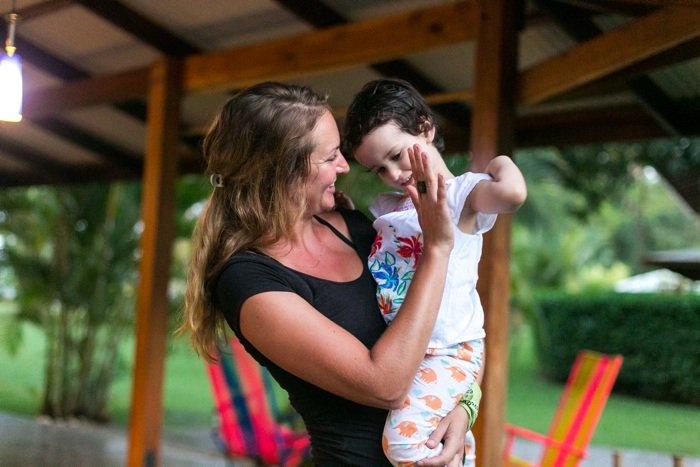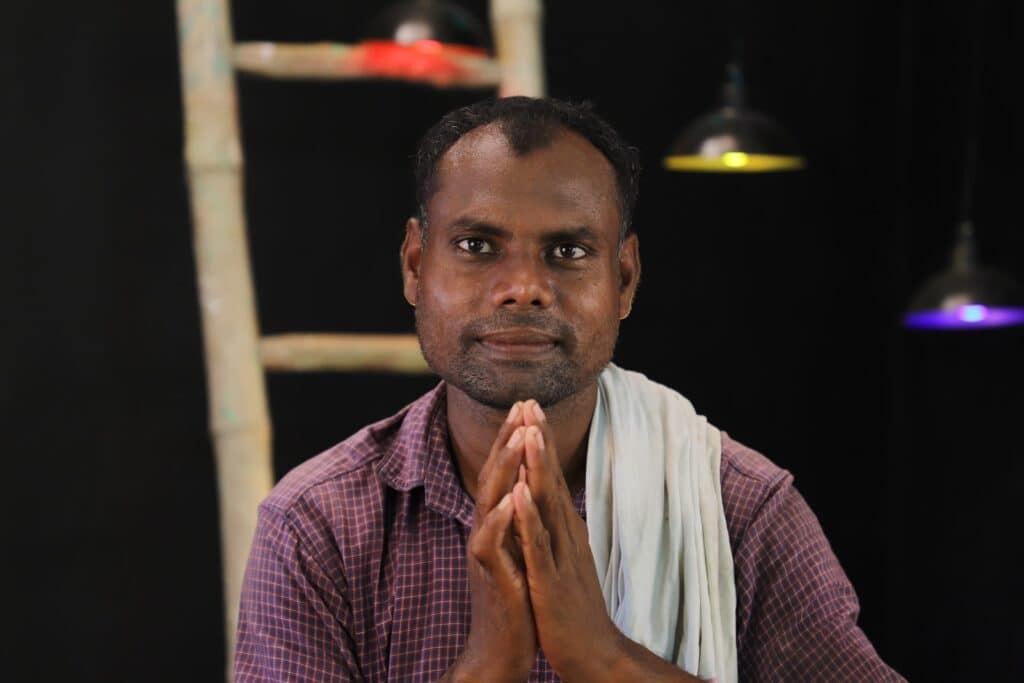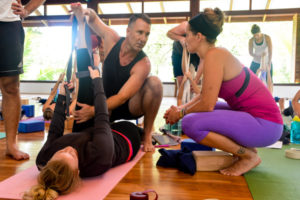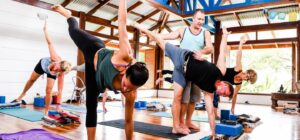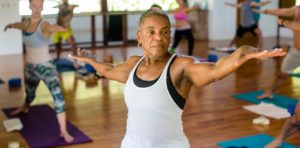There comes a point in your yoga journey when you start asking: What is a yogi personality, anyway?
Does being an authentic yogi mean sporting mala beads and greeting passersby with a nod and a namaste? Does it require signing up for meditation retreats and spouting the benefits of a raw vegan diet?
Or maybe you’re wondering if being a yogi involves bending and balancing in designer yoga attire (much like the influencers you follow on Instagram.)
There’s no denying that with the commercialization of yoga, comes a particular yoga identity to which many practitioners subscribe. That’s okay! From fashion to food, if you resonate with a style or product, then enjoy it!
There’s just one thing…
If you don’t resonate with a stereotypical yoga personality, that’s okay, too.
You’ve likely heard it said before: Yoga is for everyone.
It’s not just a common yoga quote but a pillar of my yoga teachings. So, no matter your personality or preferences, know that there is a place for you in the yoga community.
Now, some internal qualities of a yogi personality are worth exploring — meaningful character traits we can all continue to develop daily.
Let’s take a closer look at yoga and personality as we explore the top seven qualities of an aspiring yogi.
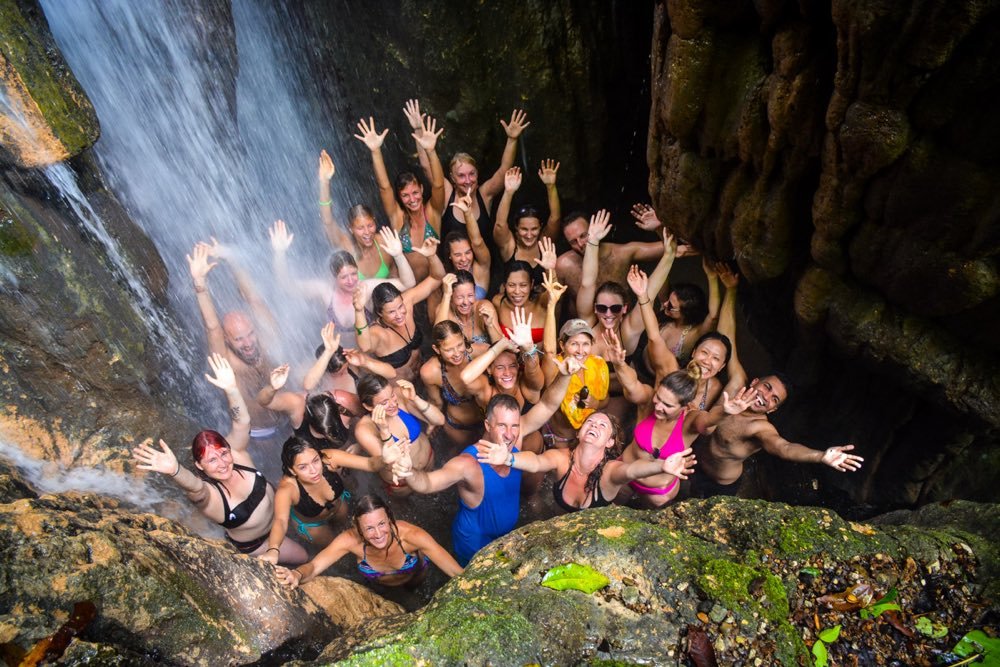
Yoga and Personality
Before we take a deep dive into what is a yogi personality, I want to emphasize the importance of individuality in yoga — especially if you’re considering a yoga teacher training program.
Your personality is a gift. People in the yoga community are looking for your quirks and qualities, so don’t be afraid to shine! What makes you unique will attract your tribe and set you apart in a sea of other yoga teachers.
I know it’s easy to feel like all yoga teachers are “naturally” outgoing, bubbly, attractive, and well-spoken. Or maybe your yoga instructors appear stoic and serene — like they just teleported from an Ashram in India!
Well, I’m here to tell you that these stereotypes are just that…
…stereotypes.
Inclusivity in yoga classes matters. If you’ve ever felt less-than or unincluded in yoga, I want you to know you’re not alone, and other yoga communities are waiting with open arms to embrace you just as you are.
Read More: How To Be More Inclusive in Your Yoga Class
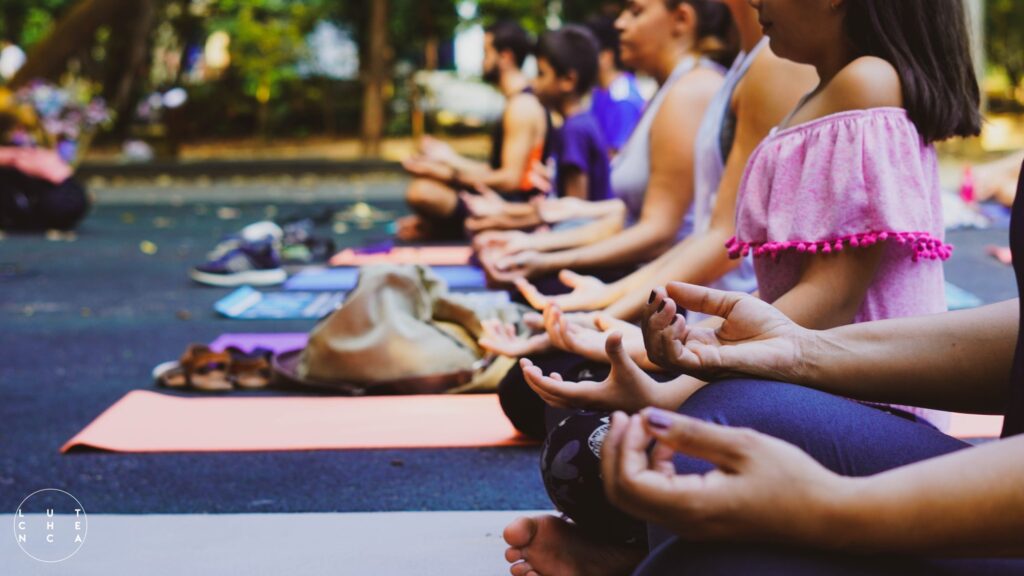
So, with all yogi personalities warmly welcomed, let’s now review a few important characteristics of an aspiring yogi:
What does it mean to be a yogi?
If we’re going to discuss the qualities of a yogi, it makes sense to ask the question: What makes a yogi a yogi?
We can discover more about the characteristics of a yogi by turning to the Bhagavad Gita. In this ancient text, we learn that a yogi is someone with a stable mind — a person of equanimity, free of attachment to success or failure, suffering or joy.
We dive deep into the history of yoga — and how ancient teachings can inform modern life — during our yoga teacher training programs.
Listen…
Being a yogi isn’t about flexibility or inversions. Instead, the true meaning of yoga is to bring awareness and balance to the mind and body. This quote from The NYTimes sums it up nicely:
“The original context of yoga was spiritual development practices to train the body and mind to self observe and become aware of their own nature. The purposes of yoga were to cultivate discernment, awareness, self-regulation and higher consciousness in the individual.”
Once we realize yoga is more about inner development than physical appearance, we can start to understand the true qualities of a yogi personality.
So what is a yogi personality?
So, what is a yogi personality? Let’s review seven important qualities of any aspiring yogi.
1. Judgement-free
Practicing non-judgment is easier said than done — especially when it comes to judgemental thoughts about ourselves.
However, it helps to remember those judgmental thoughts are just stories and harmful thought patterns that remove us from the present moment. A yogi personality recognizes that judgment does more harm than good; they strive to observe themselves and the world around them without attaching an opinion.
As we become more non-judgemental, we become more equanimous in the mind and spirit — we discover more peace, gratitude, and love towards ourselves and others.
2. Respectful
“Respect is an acknowledgment of the inherent worth and innate rights of the individual and the collective.”
The Asana Journal
A pillar of yoga is to know your worth and honor the worth of others. I don’t need to agree with you (or you with me), but I can respect your journey and your inherent self-worth without dimming my self-respect in the process.
When we practice respect in this way, we minimize conflict and harm — and cultivate self-regulation and awareness.
What is one easy tip to practice respect today?
Respect where you are in your yoga practice. Release any temptation to force yourself past your boundaries. Know that you are exactly where you need to be in your practice.
3. Curious
What is a yogi personality? Someone who is curious.
A sense of wonder when listening to the ocean waves. A desire to learn about the mystical elements of yoga. A yearning to explore how our bodies feel in different yoga poses.
Curiosity is about a devotion to learning. It’s releasing arrogance and attachment to the Ego, so we can better understand ourselves emotionally and spiritually.
How can you embrace curiosity? Don’t be afraid to play! Child-like wonder is a beautiful thing.
Think about a youngster exploring their surroundings. They have no attachment to the outcomes of their discoveries. Instead, they are present in the moment, simply enjoying the process of being and learning.
So, try new things. Explore how your mind and body feel. Ask questions! In other words, stay curious — both on and off the mat.
4. Humble
“Humility is nothing but truth, and pride is nothing but lying.” – Saint Vincent de Paul.
The practice of yoga is exactly that — a practice. Yoga isn’t about flexibility. Just because a yoga pose is more “difficult” doesn’t mean it provides more benefits to the mind and body.
When we come back to humility, we remember that yoga is not about proving ourselves — and it’s certainly not about getting the most likes on social media. Rather, yoga is an ever-evolving journey of self-discovery.
It takes humility to detach from our Ego, but from this place of humility, we can sit with the fluctuations of the mind to discover greater peace and deep-rooted joy.
5. Passionate about service
Another answer to the question: What is a yogi personality? Someone of selfless service, or Seva, to the world.
You’ve likely heard your yoga teacher instruct you to “take your yoga off the mat,” but what does that really mean?
We can’t create world peace or control the actions of those around us. However, we can choose to live peacefully and spread kindness. The key is to be of service without the expectation of gratitude or reward — to cultivate compassion and generosity simply because we know it’s the right thing to do.
The continual practice of Seva is a pathway to self-realization — which is why we practice yoga in the first place.
6. Generous
There’s a concept in yoga called Aparigraha: there is enough for everyone.
When we view the world through a lens of abundance and non-attachment, we start to realize that we already have everything we need. Because we aren’t operating from a place of perceived scarcity, there’s always a way to be generous in spirit to those around us.
Now, generosity doesn’t have to be with physical belongings. You can be generous with your time, your knowledge, or your attention.
Just as with Seva, true yogis aren’t generous for a reward or acknowledgment, but simply because they know there is always enough to share with others.
7. Compassionate
We’ve all been there…
The person on the yoga mat next to us is breathing too loudly. Or maybe the car driving in front of us is too slow. Our in-laws are too opinionated and our neighbors are too noisy.
It’s human to get frustrated or annoyed with those around us. However, yoga teaches us that the remedy to such ill thoughts is compassion.
Compassion doesn’t happen overnight, but it is a quality we can cultivate through awareness, intention, and meditation.
To sum it up: what is a yogi personality?
Yoga is about practice, not perfection. So, if you’re still wondering what is a yogi personality, then remember these seven intrinsic qualities. But more importantly, embrace your journey, and know we’re all growing and evolving together!
Now, are you ready to deepen your yoga practice in one of the most beautiful, biodiverse places on earth? Then we’d love to welcome you to Blue Osa, our yoga sanctuary where all personalities and individuals are celebrated.
We created our beachfront yoga retreat to be the perfect escape for the busy, burnt-out individual. Our lush setting promotes healing and mindful reflection, so you get the foundation you need for a healthier, more rewarding life.
Learn more about our private yoga retreats here and start curating the custom retreat of your dreams today.


